What You Need to Know About Psychedelics: Mushrooms, Ketamine, LSD, MDMA and More
Magic mushrooms, LSD, MDMA and ketamine, once associated with counterculture movements, are now being explored for their potential benefits. From enhancing creativity to treating mental health conditions, these substances are gaining recognition and attracting investments. However, it's important to navigate the landscape of psychedelics with caution, as risks and legal restrictions still exist.
Silicon Valley entrepreneurs and tech enthusiasts have embraced psychedelics as a means to enhance their lives and unlock business breakthroughs. Some individuals claim that these substances increase focus, stimulate creativity, and generate disruptive ideas.
In fact, Elon Musk has told people he is taking small doses of ketamine to treat depression and has also been seen taking the drug recreationally, according to a recent report from The Wall Street Journal. The publication said the billionaire takes full doses of the drug at parties, citing individuals who have seen Musk use ketamine and other people with direct knowledge.
Additionally, individuals with anxiety and depression have reported self-treating with psychedelics and experiencing positive effects. Universities and clinics are actively researching the potential therapeutic applications of psychedelics for conditions such as post-traumatic stress disorder (PTSD) and depression.
Recognizing the growing interest, investors are pouring money into psychedelic therapeutics, with the market projected to reach more than $9 billion by 2028, according to research.
Despite the growing enthusiasm, it is crucial to acknowledge that the use of psychedelics is still in its early stages, and the drugs come with risks. Researchers emphasize the potential for abuse, and individuals with certain heart or brain-related conditions are excluded from clinical trials due to safety concerns. Moreover, many psychedelics remain illegal under current legislation.
One well-known psychedelic, ketamine, stands apart from others due to its legal status. Ketamine is an anesthetic commonly used in hospitals and clinics for surgical procedures. While it has hallucinogenic properties, leading to its reputation as a party drug known as Special K, it has gained popularity in the medical field. Recent studies have suggested that ketamine can be effective in treating severe depression, suicidal thoughts, and PTSD.
Additionally, it has shown promise in managing chronic pain, including cancer-related neuropathic pain. Unlike "classic" psychedelics such as LSD and psilocybin, which interact with specific receptors in the brain, ketamine affects the brain differently. Researchers are still exploring the mechanisms by which ketamine produces its effects.
Aside from ketamine,which is legal and approved by the Food and Drug Administration (FDA) as an anesthetic, the legal status of psychedelics in the United States varies. Most psychedelics, including LSD and MDMA, are federally classified as illegal and controlled substances, subject to strict regulations.
However, several cities have decriminalized certain psychedelics, with Oregon and Colorado taking notable steps towards legalization and Connecticut, California and Nevada also passing legislation to decriminalize or legalize.
In contrast, because of ketamine’s status, it can be prescribed off-label in clinics or even administered at home. While it remains a controlled substance, it is subject to fewer restrictions than other psychedelics. In 2019, the FDA approved esketamine, a nasal spray variant of ketamine, for the treatment of treatment-resistant depression and suicidal thoughts.
The use of psychedelics, including ketamine, has the potential to enhance and improve people's lives. Research suggests that psychedelics and dissociative drugs can temporarily alter an individual's mood, thoughts, and perceptions of the world. The National Institute on Drug Abuse states that these substances can increase openness to new thoughts and experiences.
Microdosing, which involves taking smaller amounts of psychedelic compounds, has gained popularity, particularly in Silicon Valley. Proponents claim cognitive enhancement benefits, although the scientific evidence supporting this claim is mixed. Clinical trials and psychedelic retreats often utilize higher doses, known as macrodoses, which induce hallucinations and altered states of consciousness.
Some researchers believe that the psychedelic experience itself contributes to the mental health benefits that can result from these "trips." However, companies are also developing psychedelic-like drugs that aim to provide therapeutic benefits without the hallucinatory effects.
Before considering the use of psychedelics, it is important to approach them with caution and seek professional guidance. These substances can have profound effects on an individual's mental state, and proper set and setting are crucial for a safe and meaningful experience. Working with trained therapists or participating in supervised clinical trials and retreats can provide the necessary support and guidance throughout the process.
Additionally, it's essential to understand that the effects of psychedelics can vary widely from person to person. Factors such as individual psychology, mindset, and environment can significantly influence the outcome of a psychedelic experience. It is not a one-size-fits-all solution, and what works for one person may not have the same effect on another.
Furthermore, the use of psychedelics should always be approached with respect for the substances and their potential risks. While they hold promise in various therapeutic areas, they are not without potential dangers. Psychedelics can induce intense emotional and psychological experiences, and individuals with a history of mental health conditions or those at risk of psychosis should exercise extreme caution or avoid their use altogether. The support of a qualified healthcare professional is essential in assessing suitability and managing potential risks.
Legal considerations should also be taken into account. While ketamine enjoys a more lenient legal status for medical use, most psychedelics remain illegal and subject to criminal penalties. Engaging in activities involving illegal substances can have serious legal consequences and should be approached with caution and respect for the law.
As psychedelics continue to gain attention and research progresses, it is crucial to separate fact from hype and to rely on credible sources of information. Publicly available, widely accepted research studies, reputable healthcare providers, and respected institutions can provide valuable insights into the potential benefits, risks, and responsible use of psychedelics.
The growing interest in psychedelics, including magic mushrooms, LSD, and ketamine, highlights their potential for enhancing lives and treating various health conditions. However, it is important to approach their use responsibly and with an understanding of the risks involved. Seeking guidance from trained professionals, considering legal implications, and being mindful of individual differences are essential aspects of navigating the world of psychedelics.
As research and public perception continue to evolve, staying informed and prioritizing safety are paramount in making informed decisions about the use of psychedelics in one's life.












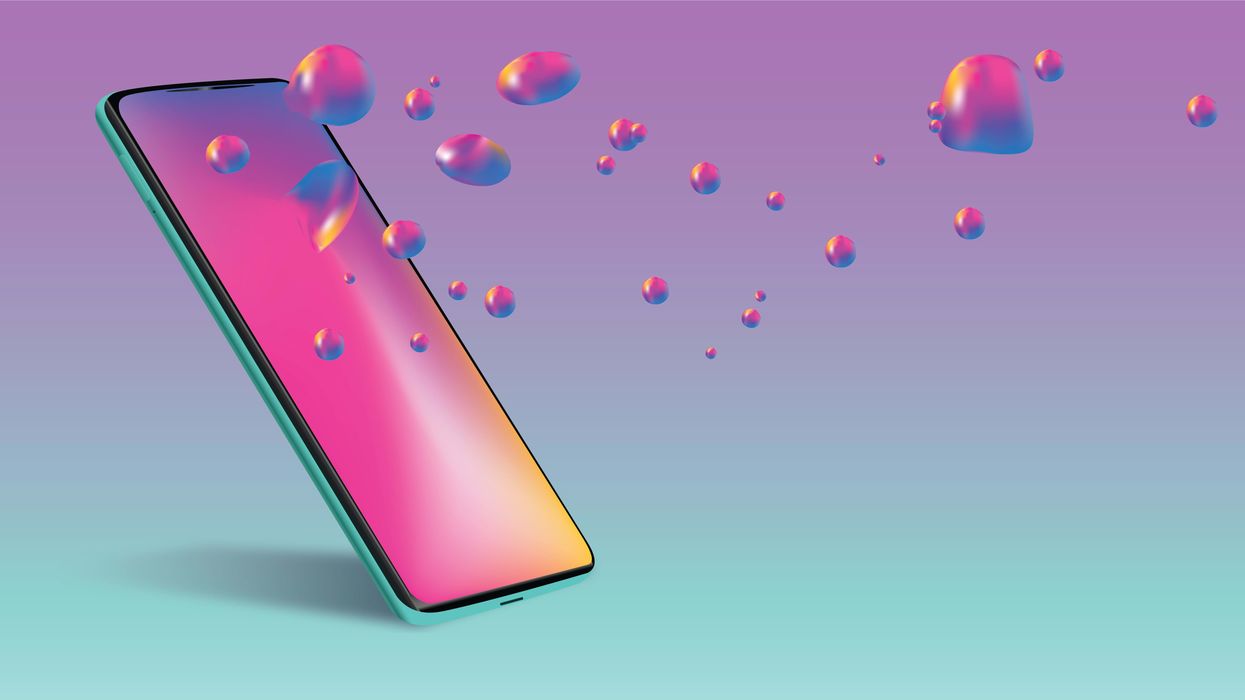

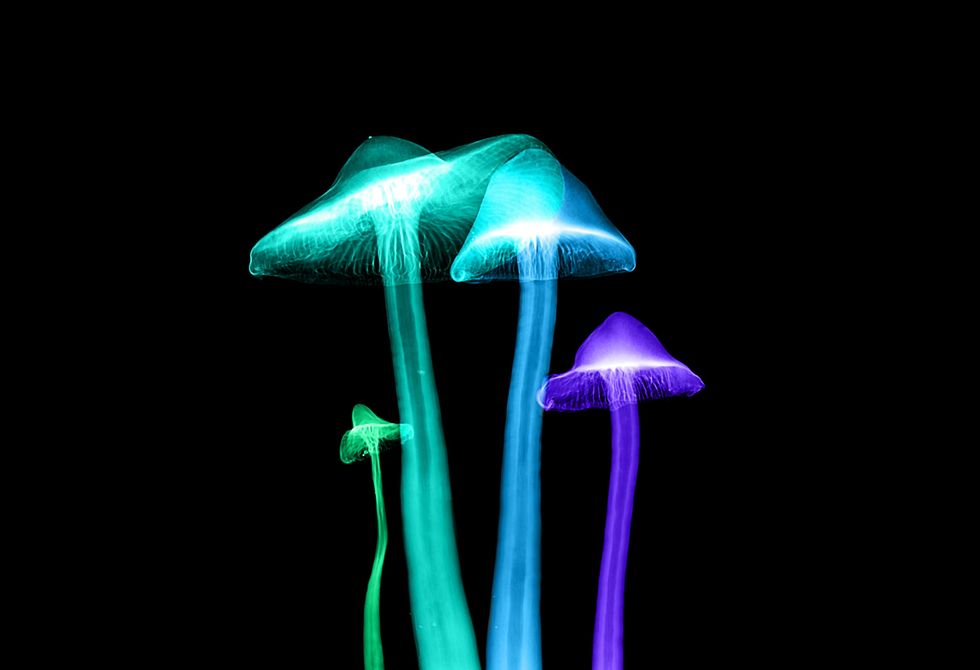 Introduction to Psychoactive Mushrooms: The Aztec God Strain - The Bluntness
Photo by
Introduction to Psychoactive Mushrooms: The Aztec God Strain - The Bluntness
Photo by 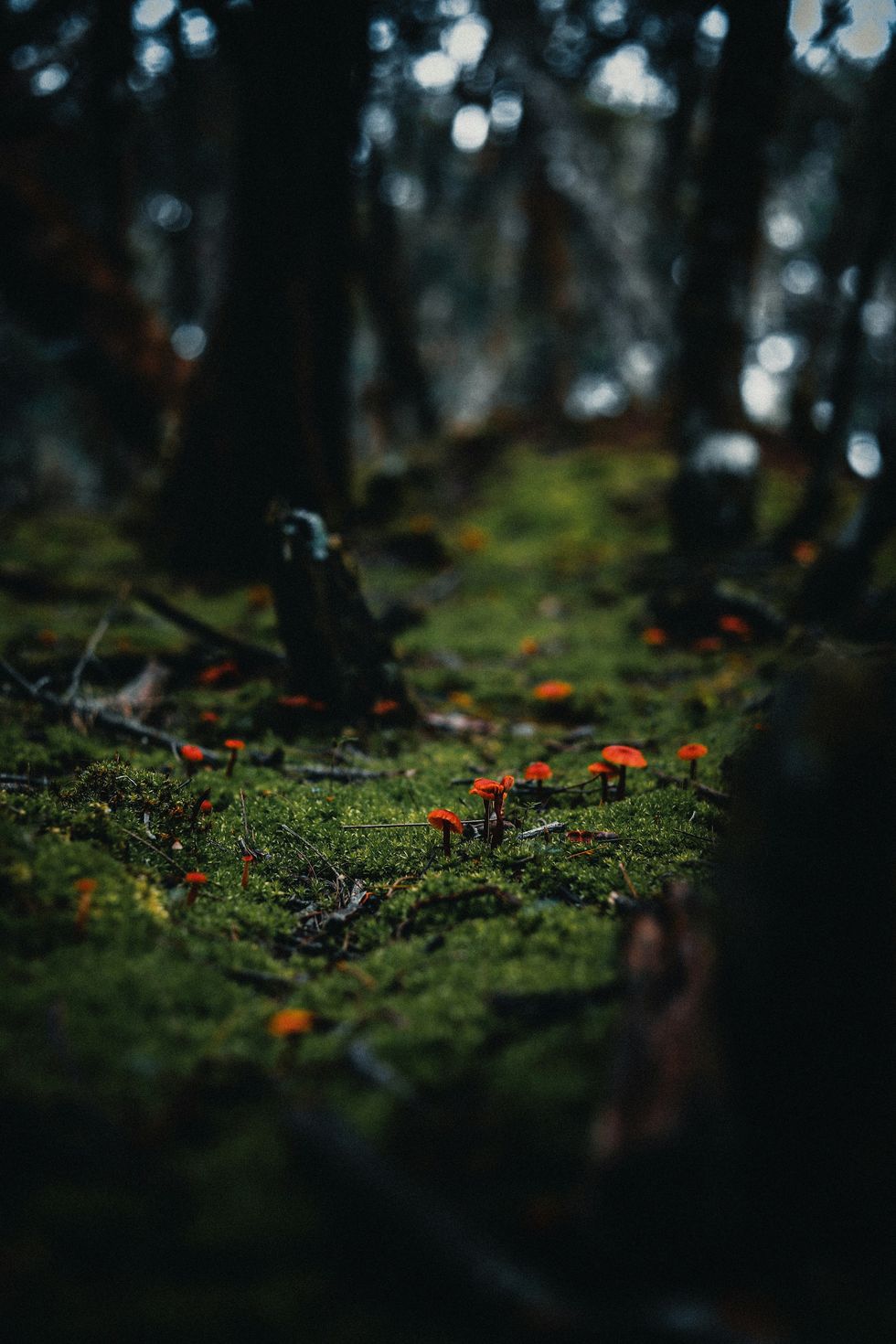 Introduction to Psychoactive Mushrooms: The Aztec God Strain - The Bluntness
Photo by
Introduction to Psychoactive Mushrooms: The Aztec God Strain - The Bluntness
Photo by 








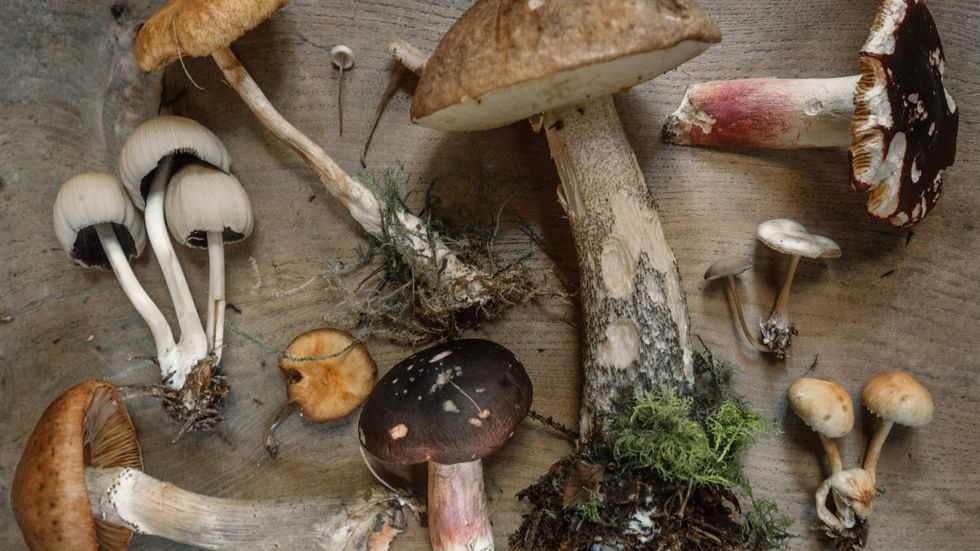 How Long Do Shrooms Last? Magic Mushroom Guide for Beginners - The Bluntness
How Long Do Shrooms Last? Magic Mushroom Guide for Beginners - The Bluntness Psilocybin can provide a life-altering experience. -The Bluntness
null
Psilocybin can provide a life-altering experience. -The Bluntness
null
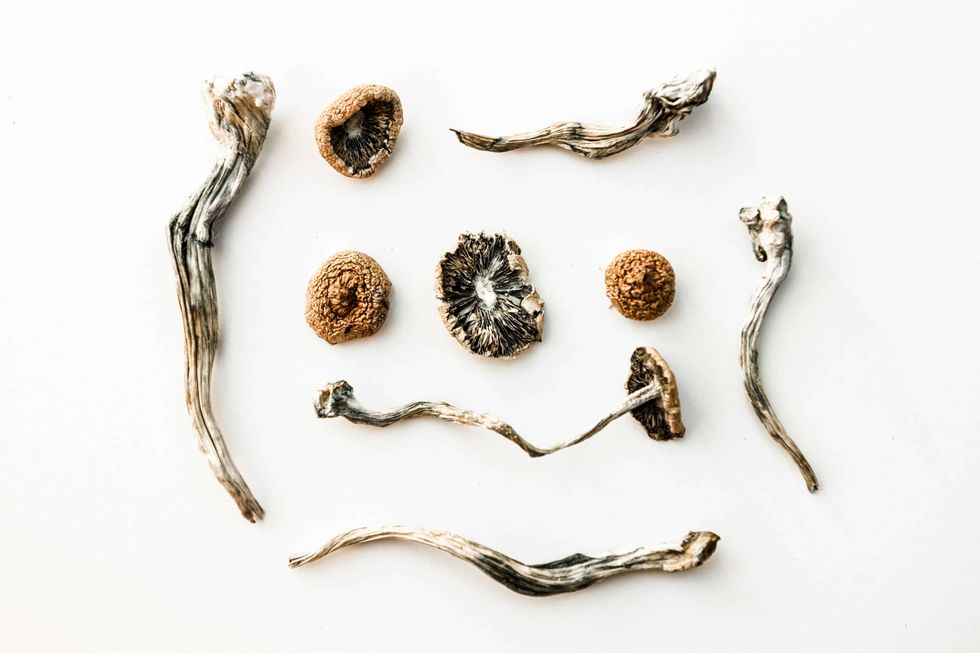 “Don’t diddle the dose. Once you have done your homework, go for it.” -- Terence McKenna
The Bluntness
“Don’t diddle the dose. Once you have done your homework, go for it.” -- Terence McKenna
The Bluntness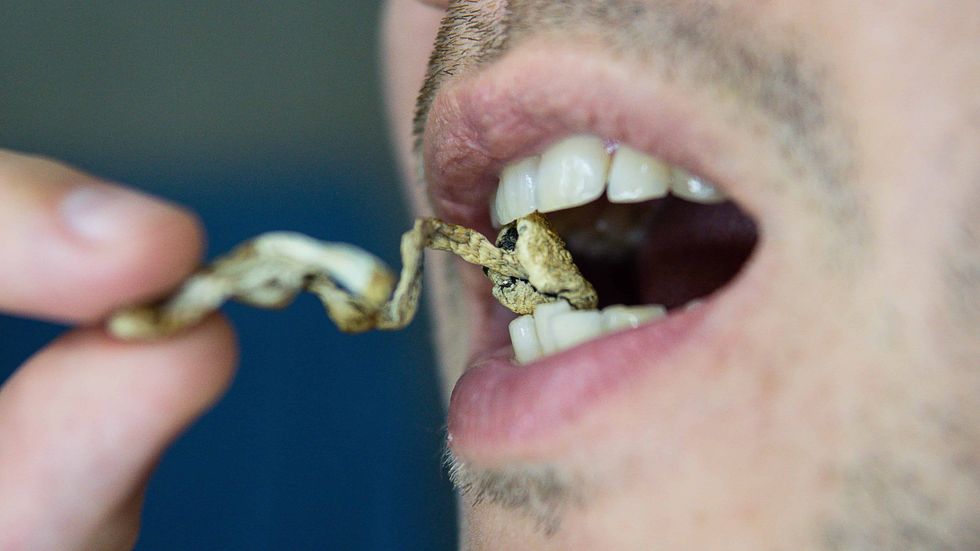 These mushrooms taste gross, but there are ways around that.The Bluntness
These mushrooms taste gross, but there are ways around that.The Bluntness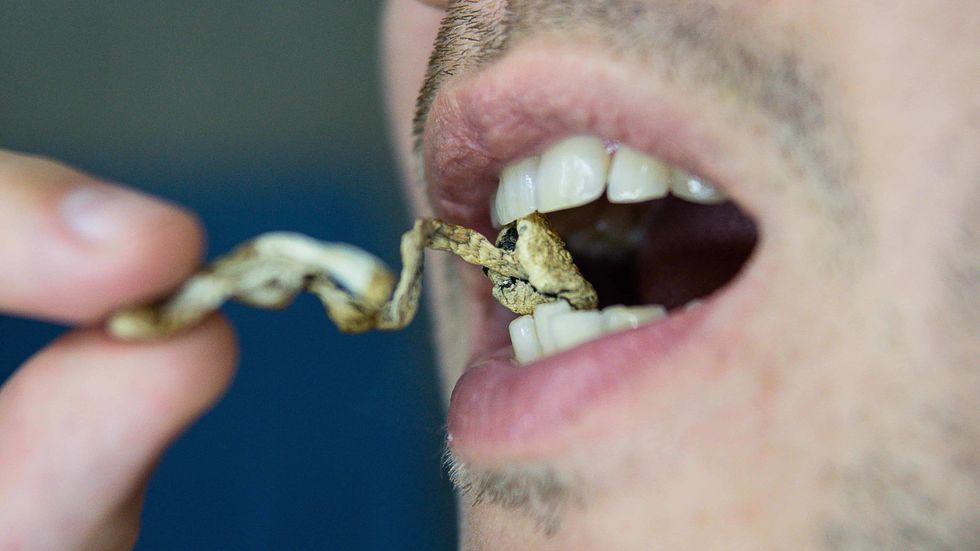 These mushrooms taste gross, but there are ways around that.
These mushrooms taste gross, but there are ways around that.